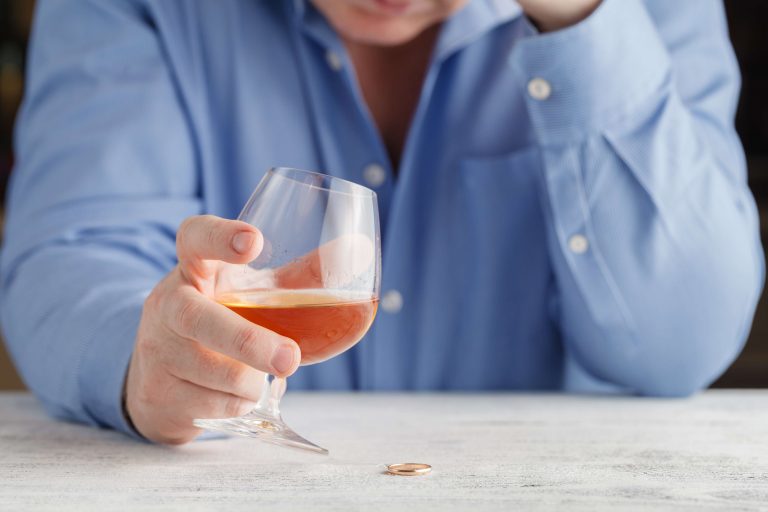How to Prevent Relapse: Top 10 Effective Strategies SJRP Drug & Alcohol Rehab Florida
This way, you can ensure that someone will be there to remind you of the benefits of sobriety and provide support. You must accept help from supportive family and friends when you need it. Emotional awareness encourages you to check in with yourself before taking action, reminding you to stay mindful of your current state. Pause first when you experience these states and find ways to deal with them without turning to substances.

Create an Action Plan for High-Risk Situations
Self-awareness enables individuals to recognize and understand their thoughts, emotions, and behaviors in relation to their recovery journey. By developing a deep understanding of their triggers, vulnerabilities, and early warning signs of relapse, individuals can proactively address potential challenges before they escalate. Staying busy is one of the most effective relapse prevention techniques. Engaging in productive activities and hobbies can provide a sense of purpose, promote healthy habits, and reduce the risk of boredom or stress-induced substance use. It’s essential to https://www.novgaz-rzn.ru/nomer22092011_37/442.html work with a healthcare professional or counselor to identify and develop coping skills that work for you and to continually practice and refine these skills over time. By building a strong set of coping skills, individuals can improve their chances of maintaining sobriety and leading a healthy, fulfilling life.
- Coping skills are the tools and strategies individuals use to manage stressful or triggering situations without turning to drug or a use.
- Schedule weekly or bi-weekly calls or meetings with supportive people to stay accountable and gain encouragement.
- With our limited coping skills, failure to employ an alternative plan, and unwillingness to talk to anyone, we increase the risk of going back to our old behavior.
- They offer a sense of belonging and understanding, often missing from other social circles.
Addiction Relapse Prevention

Setting clear boundaries with people, places, or situations that may undermine progress is crucial. By communicating and enforcing these boundaries, https://stephanis.info/2019/11/15/finding-parallels-between-and-life-2/ individuals can protect their recovery and prioritize their well-being. It involves taking the time to tend to your mental and physical health, such as getting enough sleep, eating healthy food, and exercising regularly. This blog explores relapse prevention, strategies for avoiding triggers, and coping mechanisms to manage urges of repeat negative habits. It further prevents relapse as it decreases feelings of loneliness and the risk of isolation, both of which can be common triggers for relapse. At this stage, working toward avoiding triggers or high-risk situations in which relapse could occur is critical.
Relapse After Recovery
This distinction is often more complex than it may seem, and depends on the severity of the substance use disorder. If our guilt is intense, in the absence of a plan, we likely will relapse until our next effort to change. A cigarette ad attracts us, or someone in a group puts us down, or we strain ourselves by overdoing exercise. During a mental relapse, the patient has an internal struggle between the desire to resume using and the desire to remain abstinent. Addiction Resource does not offer medical diagnosis, treatment, or advice.

Relapse Prevention (RP): Definition, Plan, Strategies, and Worksheet

Many triggers can come from environmental, mental, and emotional sources. Knowing and understanding them can help you avoid relapses during recovery. Whether you or a loved one are experiencing challenges controlling their addictive behaviors, the road toward https://ladymosquito.ca/the-most-addictive-foods/ rebuilding self-control can be overwhelming. Of drug or alcohol treatment patients are expected to relapse at some point.
What’s Included in a Relapse Prevention Plan
If a lapse or relapse occurs, the patient should be encouraged and guided by the clinician to explore the relapse itself and the circumstances surrounding it, including any early warning signs of relapse. This knowledge can then be used as a learning experience toward improved understanding and skills for relapse prevention in the future. Increasing attendance at mutual self-help group (e.g., Alcoholics or Narcotics Anonymous) meetings and boosting other personal support can exert additional positive effects. Creating a personalized Relapse Prevention (RP) plan involves a comprehensive approach to identifying triggers, developing coping strategies, and building a support network. This process is crucial for maintaining long-term sobriety and preventing relapse. When it comes to overcoming challenges and maintaining long-term success, developing relapse prevention skills is of utmost importance.
